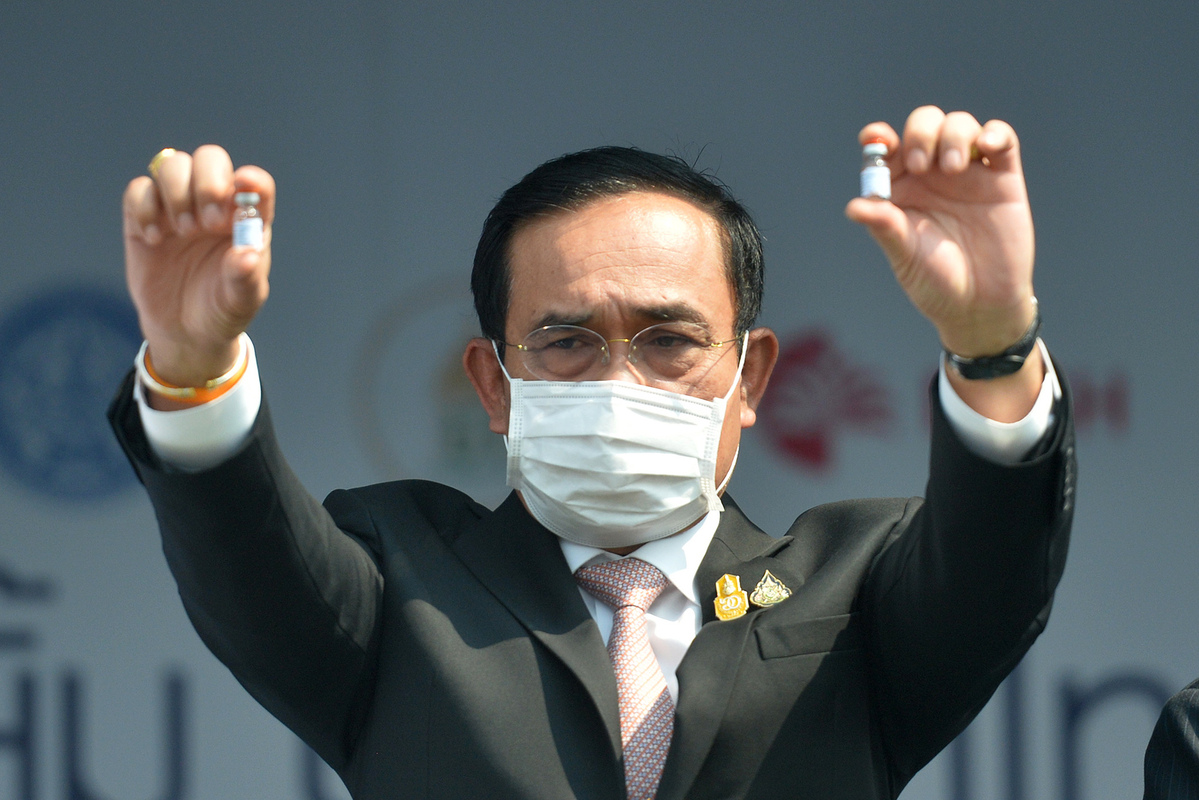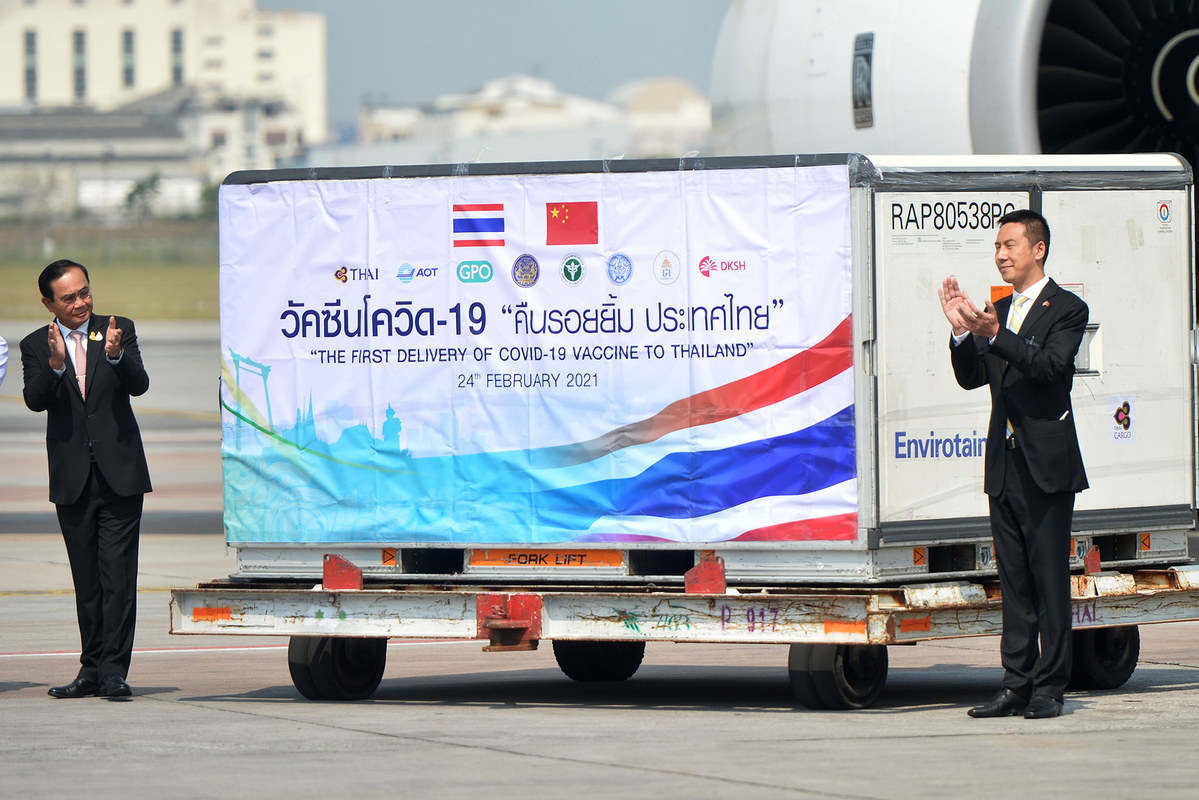Thailand welcomes first batch of Sinovac


Thailand welcomed the arrival of a Chinese-developed COVID-19 vaccine on Wednesday, when neighboring Malaysia began mass vaccinations.
In Bangkok, authorities took possession of 200,000 doses of a vaccine from Sinovac Biotech, putting the country on course to kick off a national inoculation campaign.
Sinovac vaccine could prove "a big hand to help Thailand" in its fight against COVID-19, "especially in the areas with high transmission", said Thira Woratanarat, associate professor in the Department of Preventive and Social Medicine at Bangkok-based Chulalongkorn University.
Thira noted that Thailand has been overwhelmed with a second wave of infections, with the problem worsened by delayed planning and negotiations with vaccine manufacturers.
Taweesin Visanuyothin, spokesperson for the Thai government's Center for COVID-19 Situation Administration, said on Tuesday the 200,000 doses, excluding 16,300 to be stored in reserve, will be sent to 13 provinces with high infections rates and are economically significant.

The first group of people to get vaccinated includes medical workers, those in close contact with COVID-19 patients and people with certain chronic illnesses, and those aged 60 years or older, Xinhua reported.
Tang Zhimin, director of China ASEAN Studies in the Bangkok-based Panyapiwat Institute of Management, said the shipment of Sinovac's vaccine is "a great move" for Thailand to jump start vaccinations and catch up with neighbors from the Association of Southeast Asian Nations that had already gotten off their campaigns.
"With Sinovac in its list of suppliers, Thailand is in a better bargaining position in the global scramble for the vaccines in short supply," said Tang.
When markets return to normal operating hours, the government discount packages to stimulate consumption will have a bigger multiplier effect. This would in turn boost business optimism and hopefully attract a new round of investments, said Tang.
Three-phase program
Separately, three days after the first shipment of the Pfizer-BioNTech COVID-19 vaccine arrived in the capital city of Kuala Lumpur, the Malaysian government started rolling out its three-phase immunization program.
Prime Minister Muhyiddin Yassin launched the country's inoculation drive by getting the first dose of the vaccine at the local health office. It was televised live by public broadcaster Radio Televisyen Malaysia.
Over 500,000 frontliners are expected to get vaccinated during the first phase which will last until April. More vaccines from China are expected to be delivered in days.
Leow Chiuan Yee, senior lecturer at the Institute for Research in Molecular Medicine in Universiti Sains Malaysia, said public health data have shown a national immunization campaign has led to a drop in hospital admissions and reduced the risk of contracting a serious illness.
"The hope is for the vaccine to improve (the economic) condition (of Malaysians)," said Serina Abdul Rahman, visiting fellow at the ISEAS-Yusof Ishak Institute in Singapore.
Serina said that the program might also lead to a reopening in borders, and allowing more sectors to recover. However, "the vaccine is not fail safe and there is the possibility of rising numbers of infections even if (more) are getting vaccinated."
































